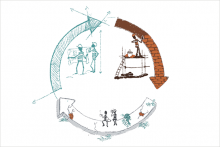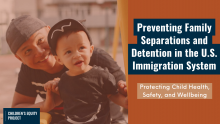Found 118 resources.
0
0
0
Looking for a lioresal? Not a problem!
Enter Site >>> https://newcenturyera.com/med/lioresal <<<
Discreet Package Low Prices 24/7/365 Customer Support 100% Satisfaction Guaranteed.
Tags:
lioresal canada online no prescription
can i buy lioresal
price of lioresal generic
lioresal extra buy coolgreany
lioresal saturday delivery ach paypal
want to purchase lioresal
where to buy lioresal spasticity
need lioresal 25mg no prescription
generic lioresal saturday shipping canada...
Topics: Advocacy, Affordable Care Act, Asset building, Asthma, Attendance, Broadband, Child welfare, CLPHA, Communications, Community development, Cost effectiveness, COVID-19, Criminal justice, Data sharing, Dental, Depression, Disabilities, Domestic violence, Dual-eligibles, Dual-generation, dual-generation initiative, Early childhood, East Coast, Education, Energy, Environmental Resiliency/Climate Change, Exercise, Family engagement, Food insecurity, Foster care, Funding, Grade-level proficiency, Green, Health, Healthy homes, Home visiting, Homelessness, Housing, Housing Is Working Group, Immigrants, Lead, Legislation & Policy, Literacy, Low-income, Medicaid / Medicare, Mental health, Metrics, Midwest, Mobility, MTW, Nutrition, Obesity, Out-of-school time, Pacific Northwest, Partnerships, Place-based, Post-secondary, Pre-natal, Preventative care, Racial inequalities, RAD, Research, Safety, SAMHSA, School-readiness, Seniors, Smoke-free, South, Stability, Substance abuse, Summit 2020, Supportive housing, Sustainability, TA, Transportation, U.S. Territories, Vision, West Coast, Workforce development, Youth
 Shared by Alynna Kramer
on May 25, 2024
Shared by Alynna Kramer
on May 25, 2024 0
0
0
Dual language education is an educational model where instruction is provided to children in two languages, usually English and a partner language. Robust bodies of research find that dual language education is the gold standard for emergent bilingual children. However, there is limited consensus on what high-quality dual language education looks like for emergent bilinguals who are infants/toddlers, preschoolers, and students in the early grades.
In this new report, The Children’s Equity Project, in partnership with The Century Foundation and dozens of research and practitioner partners...
Topics: Advocacy
 Shared by Molli Caite Hughes
on Apr 2, 2024
Shared by Molli Caite Hughes
on Apr 2, 2024 0
0
0

Social service programs are often looking for ways to assess and improve program design and implementation, and are increasingly using rapid learning methods to do so. In rapid learning cycles, programs try a new approach, see how well it works, make modifications to strengthen it, and then try it again. This brief illustrates how 10 fatherhood programs used learning cycles to evaluate one of three promising approaches to engaging men in their services, and the ways they used data in the learning cycle process to make decisions about the design and implementation of the approaches. Even...
Topics: Family engagement, Healthy homes, Research
 Shared by Sandra Ware
on Jun 8, 2023
Shared by Sandra Ware
on Jun 8, 2023 0
0
0

This document summarizes what was learned in SIRF (Strengthening the Implementation of Responsible Fatherhood Programs), which engaged 10 programs in using learning cycles—repeated periods of implementing ideas and reflecting on the results—to build evidence on practices to improve the enrollment, engagement, and retention of fathers in fatherhood programs.
Topics: Family engagement, Research
 Shared by Sandra Ware
on Jun 8, 2023
Shared by Sandra Ware
on Jun 8, 2023 0
0
0

Unfortunately, there are more youth experiencing homelessness than there are resources available. Up to 40% of youth experiencing homelessness identify as lesbian, gay, bisexual, transgender, and queer/questioning (LGBTQ+). Homelessness is often the result of multiple factors including historical and present systemic racism, discrimination, and socio-economic inequities. Learn more in our new policy brief.
Topics: Criminal justice, Homelessness, Housing, Legislation & Policy, Mental health, Racial inequalities, Safety, Stability, Youth
 Shared by Sandra Ware
on Jun 8, 2023
Shared by Sandra Ware
on Jun 8, 2023 0
0
0

ASTHO comes to our health agencies and partners saddened by our country's recent mass shooting. We mourn the losses of life from firearm violence as our families, schools, and communities continue to be impacted. ASTHO supports you now more than ever. The epidemic of firearm-related injury and death in the United States has become a critical public health and safety concern that affects everyone.
Topics: Community development, Criminal justice, Health, Mental health, Research
 Shared by Sandra Ware
on May 25, 2023
Shared by Sandra Ware
on May 25, 2023 0
0
0

Family separations and family detention have been used as part of immigration enforcement in the United States. These practices and policies are severely detrimental to child health and wellbeing and can cause lasting harm.
This brief reviews the state of the research on the developmental, psychological, and physical toll of family separation and family detention on children and their caregivers. Grounded in this science, we provide a set of policy recommendations that protect child health and wellbeing.
Topics: Child welfare, Early childhood, Health, Immigrants, Legislation & Policy, Mental health, Youth
 Shared by Sandra Ware
on Mar 30, 2023
Shared by Sandra Ware
on Mar 30, 2023 0
0
0
The following are case studies of NYCHA energy efficiency decarbonization programs. More information about the New York City Housing Authority (NYCHA) various sustainability programs can be found in our Sustainability Agenda.
Topics: Energy, Environmental Resiliency/Climate Change, Housing, Sustainability
 Shared by Sandra Ware
on Feb 9, 2023
Shared by Sandra Ware
on Feb 9, 2023 0
0
0

Many older LGBTQ+/SGL people who pioneered coming out of the closet are now forced to go back
in. As their housing needs and preferences change with age, prejudice is still rampant. And under the
U.S. Fair Housing Act, gender identity and sexual orientation are not explicitly protected classes where
housing is concerned. Creating appropriate housing for LGBTQ+/SGL seniors must be informed by the
life experiences of older people in this community, which often include family rejection, mistreatment,
and even violence. This means increasing our cultural competence—from the terminology used...
Topics: Community development, Housing, Seniors
 Shared by Sandra Ware
on Nov 29, 2022
Shared by Sandra Ware
on Nov 29, 2022 0
0
0
Social media tool kit to promote and advertise the December 6th Virtual Spotlight – LGBTQ+/SGL* – Affirming Housing for Older People event.
Topics: Community development, Housing, Seniors
 Shared by Sandra Ware
on Nov 29, 2022
Shared by Sandra Ware
on Nov 29, 2022 0
0
0
Successful diabetes care for vulnerable populations demands a multi-prong approach, deploying direct health interventions, medications, and support from a range of community resources to address the social determinants, which impact diabetes. This brief will highlight, through case studies and program descriptions, the important role of non-clinical staff in both the health center and housing setting to support individuals and families struggling to prevent and keep diabetes conditions under control.
Topics: Health, Housing
 Shared by Sandra Ware
on Nov 29, 2022
Shared by Sandra Ware
on Nov 29, 2022 0
0
0
The series highlights the promising work of the EHS-CCPs to date, particularly related to pandemic recovery and stabilization, workforce support, and expanding access to holistic support for children and families, especially mental health support. The briefs highlight the many roles that states can play in establishing and expanding their own EHS-CCPs, including by using Preschool Development Grant Birth to Five funding and aligning CCDF quality funding with supports needed to establish and grow the Early Head Start model.
The EHS-CCPs take many forms in states and communities across the...
Topics: Child welfare, COVID-19, Health, Mental health, Workforce development
 Shared by Sandra Ware
on Nov 3, 2022
Shared by Sandra Ware
on Nov 3, 2022 0
0
0
Unsheltered homelessness is on the rise amid a systemic and widespread lack of affordable housing, supportive services, and livable wages. As the housing crisis worsens, homelessness has become increasingly visible and, as a result, increasingly dominant as a public concern.
Instead of addressing the issue’s root causes—a lack of housing and supportive services—many cities have leaned into punitive responses that criminalize homelessness, such as arresting people for sitting or sleeping in certain public places. But this approach is costly and ineffective. Police don’t solve homelessness,...
Topics: Criminal justice, Homelessness, Supportive housing
 Shared by Sandra Ware
on Nov 1, 2022
Shared by Sandra Ware
on Nov 1, 2022 0
0
0
Medical debt is a critical challenge to Americans’ financial stability and well-being. People with medical debt are more likely to forgo needed medical care, have difficulty meeting basic needs, and face an increased risk of bankruptcy.
Recent Urban research shows there are great disparities in who carries the most medical debt. Adults who live in communities where the majority of the population are people of color are more likely to have medical debt in collections reported on their credit reports. In particular, Black adults are more likely to have difficulty paying for family medical...
Topics: Asset building, Dual-eligibles, Health, Legislation & Policy, Low-income, Medicaid / Medicare, Racial inequalities
 Shared by Sandra Ware
on Oct 27, 2022
Shared by Sandra Ware
on Oct 27, 2022 0
0
0
Approximately one in five adults reported experiencing household food insecurity in both spring 2020 and again in summer 2022, after a decline in reported food insecurity in spring 2021. High food price inflation, along with elevated costs for other basic needs, such as transportation and rent, have likely eroded food budgets in the last year. In addition, some of the safety net responses that buffered food insecurity in 2021 are no longer in place. In this brief, we use data from the Health Reform Monitoring Survey, a nationally representative survey of nonelderly adults, to assess food...
Topics: Food insecurity, Research, Stability
 Shared by Sandra Ware
on Oct 27, 2022
Shared by Sandra Ware
on Oct 27, 2022 0
0
0
Disabled individuals and families in federally assisted housing face multiple challenges in gaining access to housing units and services that meet their needs—despite legal frameworks meant to help them. This brief focuses on working-age disabled individuals and families with a disabled household member who live in federally assisted housing. It presents evidence of the challenges with federally assisted housing processes and supports for residents with disabilities, and provides recommendations that could help these processes and supports better meet legal obligations and resident needs.
Topics: Disabilities, Family engagement, Housing
 Shared by Sandra Ware
on Oct 27, 2022
Shared by Sandra Ware
on Oct 27, 2022 0
0
0
According to UN-Habitat, the world needs to build 96,000 affordable homes every day to address the
global housing crisis by 2030. Yet, better utilizing existing housing stock—through options such as shared
housing—can make a significant dent in the need to build more housing. With college students often
challenged to find affordable housing and many older adults living alone in homes with spare bedrooms,
these two groups are increasingly benefitting from living together. Universities are often well-suited to
facilitate students living and learning with older adults in nearby communities...
Topics: Community development, dual-generation initiative, Funding, Health, Homelessness, Housing, Mental health, Seniors, Youth
 Shared by Sandra Ware
on Oct 25, 2022
Shared by Sandra Ware
on Oct 25, 2022 0
0
0
Created by the Older Americans Act in 1973, AAAs are part of the national Aging Network. AAAs are the local leaders that develop, coordinate, and deliver a wide range of home and community-based services. These services include information and referral/assistance, case management, home-delivered meals and meals in
congregate settings, in-home services, caregiver supports, transportation, evidence based health and wellness programs, long-term care ombudsman programs, and more. People who receive services provided by AAAs have improved health and well-being, helping them remain in their homes...
Topics: Disabilities, Food insecurity, Homelessness, Housing, Low-income, Seniors, Supportive housing
 Shared by Sandra Ware
on Oct 18, 2022
Shared by Sandra Ware
on Oct 18, 2022 0
0
0
As an Area Agency on Aging (AAA), AgeSpan engages in innovative partnerships with housing providers through the Massachusetts Supportive Housing Program (MSHP). Working with property managers at designated local housing sites, AgeSpan places staff as resident service coordinators (RSCs). The RSCs deliberately build strong, trusting relationships with residents, offering a daily touchstone that greatly improves quality of life. When housing and services are coordinated, older adults and people with disabilities are
better able to live well in the community.
Topics: Disabilities, Food insecurity, Housing, Low-income, Seniors
 Shared by Sandra Ware
on Oct 18, 2022
Shared by Sandra Ware
on Oct 18, 2022 0
0
0
Join the Housing Is Working Group for webinars, member updates, and round table discussions! This resource provides the 2022-2023 Calendar of Events.
Topics: CLPHA, Housing, Housing Is Working Group
 Shared by Camille Anoll-Hunter
on Aug 30, 2022
Shared by Camille Anoll-Hunter
on Aug 30, 2022 0
0
0
A new D.C. Federal Nutrition Programs Toolkit is designed to help community-based organizations, social service and healthcare providers, District agencies, and community members connect low-income households with federal nutrition programs. Beverley Wheeler, director of D.C. Hunger Solutions, told The DC Line, “with this toolkit, our community leaders can play a key role in ensuring children, young adults, adults, and older adults can connect with the right providers to help gain access to the nutrition they need for their health and well-being.”
Topics: East Coast, Food insecurity
 Shared by Kirsten Greenwell
on Jul 30, 2021
Shared by Kirsten Greenwell
on Jul 30, 2021 0
0
0
Every child in an early childhood setting should have a teacher with specialized education to promote that child’s cognitive, social, emotional, and physical development and who prepares them for success in school and in life. The National Research Council’s report from a panel of experts, Transforming the Workforce for Children Birth Through Age 8: A Unifying Foundation, lays out several recommendations for programs serving children from birth through age 8, notably that teachers "should have at a minimum a bachelor’s degree and specialization in the knowledge and competencies needed to...
Topics: Early childhood, Education, Post-secondary
 Shared by Kirsten Greenwell
on Jun 30, 2021
Shared by Kirsten Greenwell
on Jun 30, 2021 0
0
0
In March 2020, the COVID-19 pandemic forced many public housing authorities (PHAs) to quickly adjust their operational procedures to protect their staff while providing emergency assistance to residents. Many PHAs had to close their offices and convert to remote operations almost overnight, while staff focused on supporting their tenants by delivering them food, doing wellness checks for vulnerable residents, and ensuring they had access to and in some cases providing the technology needed for children to attend school remotely and isolated residents to remain connected to friends, family,...
Topics: Advocacy, COVID-19, Data sharing, Health, Housing, Safety, Supportive housing
 Shared by Housing Is
on May 25, 2021
Shared by Housing Is
on May 25, 2021 0
0
0
Colleges support students with advising, counseling, or coaching in academics and other skills they need to succeed in school. Some colleges enhance those services through reduced adviser caseloads and more comprehensive, frequent guidance, which can improve students’ semester-to-semester retention and average credits earned. This overview describes important lessons on designing and implementing those services. College leaders and administrators committed to designing, building, managing, and continually supporting enhanced advising services can consult this checklist of recommendations as...
Topics: Attendance, Child welfare, Community development, Education, Grade-level proficiency, Post-secondary, Workforce development
 Shared by Housing Is
on Mar 4, 2021
Shared by Housing Is
on Mar 4, 2021 0
0
0
The National Asian Pacific Center on Aging has launched a an automated COVID-19 in-language helpline and website for older adults and their caregivers.The helpline offers information on prevention, symptoms, and planning in 8 different languages. Each language will have a dedicated 1-800 line so that older adults who are limited English-proficient can immediately learn about the COVID-19 without having to navigate through difficult English prompts.
Topics: Communications
 Shared by Kirsten Greenwell
on Mar 23, 2020
Shared by Kirsten Greenwell
on Mar 23, 2020 